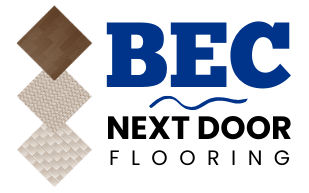When it comes to flooring options, hardwood floors are a classic choice that can add beauty and value to any home. However, with so many different types of hardwood flooring in Alpharetta available, it can be challenging to determine which option is the best for your specific needs. This article will explore the different types of hardwood flooring, their durability and longevity, cost and value, installation and maintenance requirements, and popular options to help you make an informed decision.
Types of Hardwood Flooring
There are numerous varieties of hardwood flooring on the market, each with unique characteristics and benefits. Solid hardwood flooring is one of the most popular types. This flooring is manufactured from a single piece of wood and comes in various kinds, including cherry, oak, and maple. Solid hardwood flooring is famous for its robustness, longevity, and capacity for multiple refinishes. You are not encouraged to choose solid hardwood flooring for high-moisture locations, such as bathrooms and basements, and it is one of the priciest kinds of hardwood flooring.
The second popular type of hardwood flooring is engineered hardwood. This flooring is made by bonding multiple layers of wood and is available in many types, including oak, hickory, and ash. Engineered hardwood flooring is more stable than solid hardwood flooring, making it less likely to warp or bend in high-moisture areas. Installing engineered flooring is cheaper and more manageable, as you can install it above or below grade.
Another option is bamboo flooring which comes from bamboo grass. It is a renewable resource and is a sustainable choice for flooring. Bamboo flooring is more rigid than traditional hardwood flooring but still provides a beautiful, natural look. It is also less expensive than traditional hardwood flooring and is easy to maintain.
Lastly, Laminate flooring is another alternative to hardwood flooring. It is less expensive than hardwood flooring and is more resistant to scratches, dents, and stains. It is also easy to install and maintain, making it an excellent choice for homeowners on a budget.
In conclusion, many types of hardwood flooring are available on the market, each with unique characteristics and benefits. It’s essential to consider the specific needs of your home, including the level of foot traffic, moisture levels, and budget, when choosing the best type of hardwood flooring for your home.
Durability and Longevity
Solid Hardwood Flooring
Homeowners and contractors favor solid hardwood flooring because of its durability and longevity. Since the origin of hardwood flooring is a single piece of wood, solid hardwood boards are more robust and durable. Solid hardwood can be repeatedly sanded and polished, increasing its life. With the proper upkeep, solid hardwood flooring can provide homeowners with years of warmth and natural beauty, making it a substantial investment. Oak, Brazilian cherry, hickory, and bamboo are a few examples of solid hardwood flooring options renowned for their sturdiness and lifespan.
Engineered Hardwood Flooring
Engineered hardwood flooring is known for its durability and longevity. Genuine hardwood plays an integral role in making the top layer of the flooring, which gets protection from multiple layers of plywood. This construction makes engineered hardwood more resistant to moisture and temperature changes than solid hardwood. It is also less prone to warping and cupping than solid hardwood. Additionally, engineered hardwood is an excellent option for areas of the home that receive a lot of foot traffic, as it is more resistant to scratches and dings than solid hardwood. With proper care and maintenance, engineered hardwood flooring can last for decades. Overall, engineered hardwood flooring is a great investment for any home.
Laminate Flooring
With proper care and maintenance, laminate flooring can last for many years, making it a cost-effective flooring solution. It is made of several material fused layers, including a wear layer, a design layer, and a backing layer. The wear layer is rigid, clear material resistant to scratches and dings. Furthermore, the design layer is a high-resolution photograph of wood or stone, giving the laminate a realistic appearance. The backing layer provides stability and support for the flooring. Laminate flooring is also resistant to moisture, making it an excellent option for bathrooms and kitchens.
Cost and Value
Solid Hardwood Flooring
The cost of solid hardwood flooring can vary greatly depending on the type of wood, quality, and location. On average, it can range from $5 to $15 per square foot for materials and $4 to $8 per square foot for installation. The value of solid hardwood flooring is that it can increase the overall value of a home and last for decades with proper maintenance. It is also durable and can be refinished multiple times to change the color or restore the finish.
Engineered Hardwood Flooring
The value of engineered hardwood flooring is that it is more stable than solid hardwood, making it suitable for use in areas with high moisture or temperature fluctuations. It is also more versatile as you can install it in places where solid hardwood cannot, like basements. Additionally, it is typically less expensive than solid hardwood. Engineered hardwood flooring can range from $3 to $10 per square foot for materials and $3 to $7 per square foot for installation.
Laminate Flooring
Laminate hardwood flooring costs $1 to $5 per square foot, and installation costs $2 to $4 per square foot. The benefit of laminate hardwood flooring is that it may imitate the appearance of real hardwood while being a more affordable option. Additionally, it is resilient, simple to maintain, and resistant to moisture and heavy traffic.
Installation And Maintenance
To install hardwood flooring, prepare the subfloor by leveling and cleaning it. Next, lay the planks in the desired pattern and secure those using nails or adhesive. To maintain hardwood flooring, sweep or vacuum the floor regularly to remove dirt and debris. Avoid water or steam mops, as excess moisture can damage the wood. You may use a damp mop or cloth for cleaning—additionally, place doormats at all exterior entrances to minimize dirt and debris on the flooring. Also, use furniture protectors under the legs of heavy furniture to prevent scratches and dents.
Upgrade your home with Next Door flooring, the best flooring for every room. Our wide range of solid hardwood, engineered hardwood, and laminate flooring options are sure to suit your style and budget. Don’t wait; contact us today and schedule a consultation to see how we can enhance the look and value of your home.

